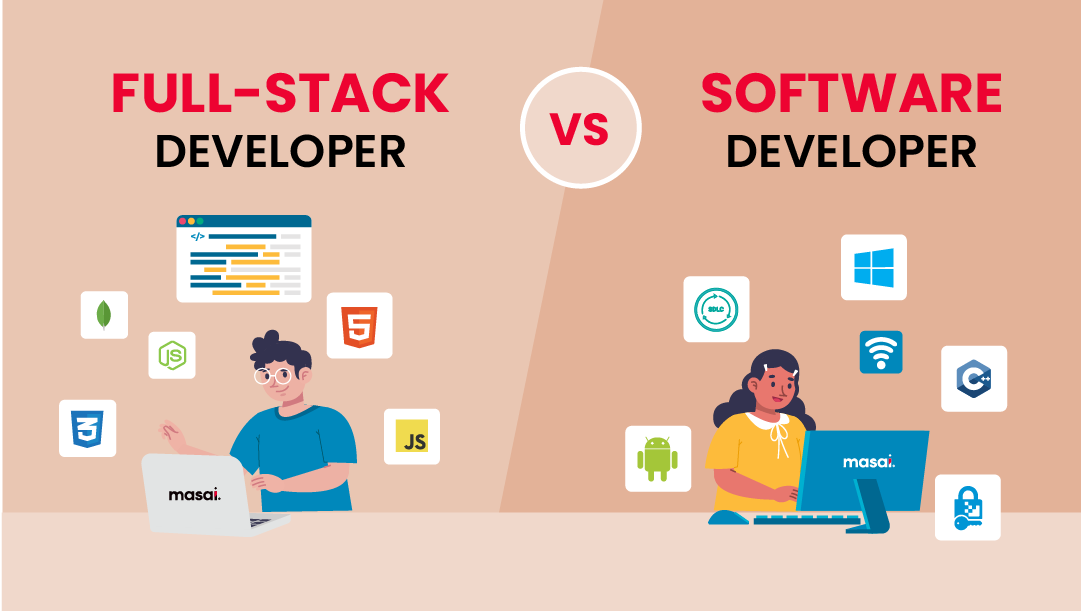Why Choosing the Right Software Development Partner Can Transform Your Project
Why Choosing the Right Software Development Partner Can Transform Your Project
Blog Article
Dedicated Developers vs. In-House Teams: Which Is Right for You?
The choice between using specialized developers and maintaining an in-house team is a considerable one that can influence the trajectory of your tasks and overall organization strategy. Dedicated programmers give a level of adaptability and customized knowledge that can be useful for details, temporary campaigns. Conversely, internal groups add to a natural company culture and a nuanced understanding of long-lasting objectives. By examining vital aspects such as budget plan, job range, and preferred control, you can better identify which approach aligns with your business demands. The ramifications of this option extend past instant outcomes-- take into consideration the wider effect on your business landscape.
Comprehending Dedicated Programmers
The growing need for specialized skills in the technology market has actually resulted in the emergence of specialized developers as a sensible service for several organizations. These specialists are normally contracted on a job basis, allowing business to utilize certain competence without the lasting commitment related to full-time hires. Committed developers are often ingrained within a client's team, providing versatility and scalability to meet job requirements.
This design allows organizations to access a worldwide skill pool, which is specifically useful in a rapidly progressing technical landscape. Dedicated designers can be sourced from numerous geographical places, making certain that companies can discover the ideal ability at competitive rates. They usually bring a wealth of experience and knowledge, having worked on diverse jobs throughout various sectors.
Moreover, specialized programmers can concentrate specifically on the jobs handy, enhancing productivity and efficiency. They are furnished to integrate perfectly into existing process, working together carefully with in-house teams to achieve project objectives. This method not only reduces the concern of recruitment and training but also allows companies to stay agile, adapting swiftly to transforming market needs and technical innovations.
Benefits of In-House Teams

Moreover, in-house groups tend to have a deeper understanding of the firm's mission, values, and objectives. This alignment can improve staff member engagement and inspiration, as employee really feel a lot more connected to their work and the organization's success. In addition, having a committed internal group permits much better placement of techniques and purposes, as these members are continually concentrated on the company's concerns.
Internal groups additionally help with quicker decision-making processes, as they can respond a lot more swiftly to difficulties and modifications. The established relationships and experience with business procedures permit streamlined process and lowered miscommunication. Eventually, the mix of a natural culture, placement with organizational objectives, and efficient communication makes in-house groups a valuable asset for numerous companies, specifically those looking to cultivate long-lasting growth and innovation.
Cost Factors To Consider
When assessing expense considerations, both dedicated developers and in-house groups present distinct financial implications for organizations. Engaging committed programmers typically entails a pay-per-project or per hour price design, which can be economical for organizations with fluctuating task needs. This method allows for flexibility in scaling sources up or down, guaranteeing that firms just pay for the services they require.
On the other hand, internal teams require repaired prices, including wages, benefits, and overhead costs such as office space and tools. While this model supplies greater control and prompt schedule of sources, it might result in higher long-term expenditures, specifically if the work does not warrant a full time team.
In addition, business need to think about the surprise prices connected with employment and training of internal staff members, which can further strain spending plans. In some cases, the time and sources invested in taking care of an internal team can diminish the organization's core organization purposes.

Job Administration and Adaptability
Project monitoring and versatility are critical aspects that affect the choice between internal teams and committed designers. Devoted teams usually have established processes for managing jobs properly, leveraging particular approaches like Agile or Scrum, which facilitate repetitive development and adaptability.

Eventually, the selection between internal teams and committed designers depends upon the wanted level of adaptability and the certain project monitoring demands. Firms need to evaluate their functional dynamics, task complexity, and source availability to identify which option straightens finest with their tactical goals.
Making the Right Choice
Selecting the best growth technique-- dedicated programmers or in-house groups-- calls for a careful analysis of various variables that line up with a company's strategic objectives. nearshore software development. Take into consideration the nature of the job. If it requires specialized skills or a quick scale-up, committed developers may be much more appropriate. On the other hand, in-house teams can offer much better connection and assimilation with existing workers.
Next, evaluate your budget. Dedicated developers frequently present an economical option for short-term jobs, while in-house groups might incur higher long-term expenditures because of incomes, benefits, and overhead prices. Examine the degree of control and partnership desired; internal teams generally foster more powerful interaction and alignment with firm society.
Furthermore, consider the moment framework. If immediate outcomes are required, devoted programmers can be onboarded swiftly, whereas developing an internal team requires time for recruitment and training. Weigh the lasting vision of your organization. If continual advancement is vital, click for more buying an in-house group may produce much better returns over time. Inevitably, the decision pivots on a complete analysis of these factors, guaranteeing alignment with your business's important site operational requirements and total objectives.
Verdict
In conclusion, the choice between internal teams and committed designers hinges on task demands and organizational purposes. On the other hand, in-house groups cultivate a natural culture and much deeper positioning with long-lasting goals.
The decision between using devoted programmers and maintaining an internal team is a considerable one that can impact the trajectory of your tasks and general organization method.Task administration and adaptability are important elements that affect the option in between internal teams and specialized programmers. offshore software development.In contrast, in-house groups might excel in preserving a regular project administration structure due to their knowledge with the organization's culture and long-lasting objectives. Dedicated developers commonly offer an economical remedy for short-term projects, while in-house teams might sustain greater long-term expenses due to salaries, benefits, and overhead expenses.In final thought, the choice in between dedicated developers and in-house groups hinges on job demands and business purposes
Report this page